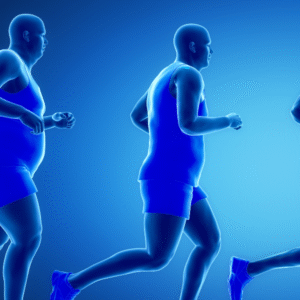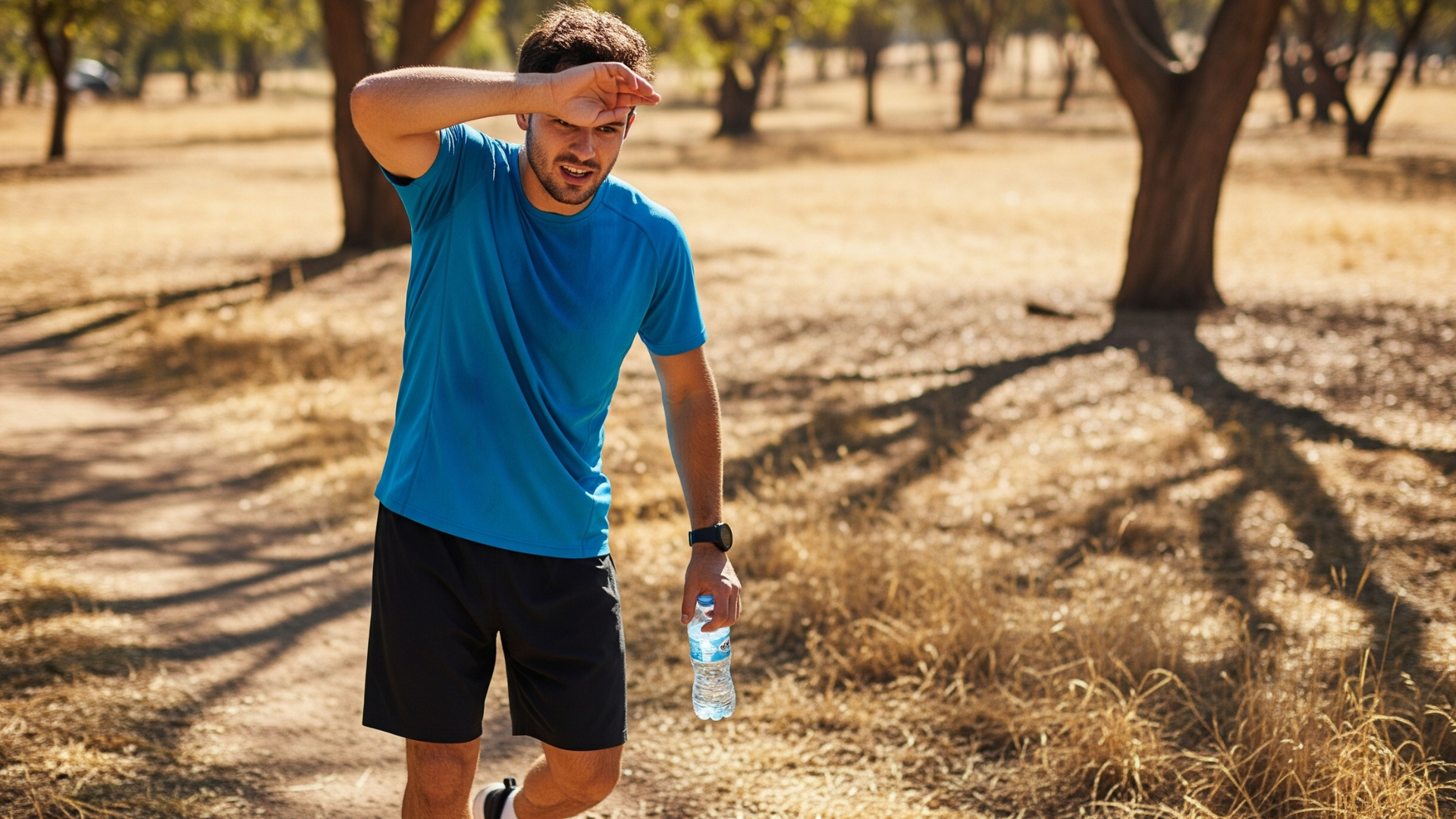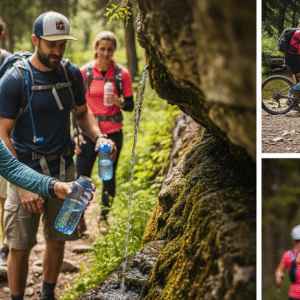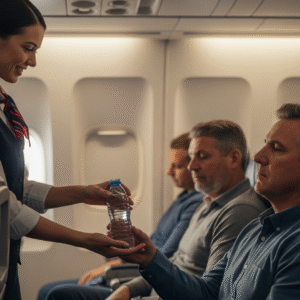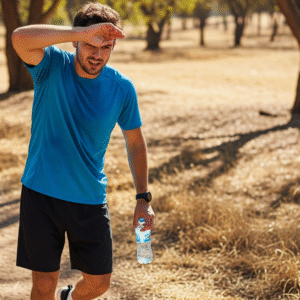To get the most out of your workout, you need to drink a lot of water. Your body loses water when you work out because you sweat. You’re not properly hydrating yourself if you don’t replace it.
Not drinking enough water can make you tired, dizzy, and less able to do things. This might make your progress take longer.
It’s not enough to just drink water to stay hydrated. It has to do with knowing how important it is to drink water while working out. People who play sports or work out a lot need to pay close attention to their water levels. With this, they are less likely to make mistakes that could hurt their performance or recovery.
Key Takeaways
- Learn the mistakes you can make with water that can hurt your exercise performance.
- Find out why staying hydrated is so important during exercise to get the best results.
- Find out how to stay instantly hydrated while you’re doing your things.
- Find out how staying hydrated can help you get more out of your workouts.
- Find out how staying hydrated can help athletes improve their endurance and recovery.
The science behind staying hydrated and how well you do in the gym
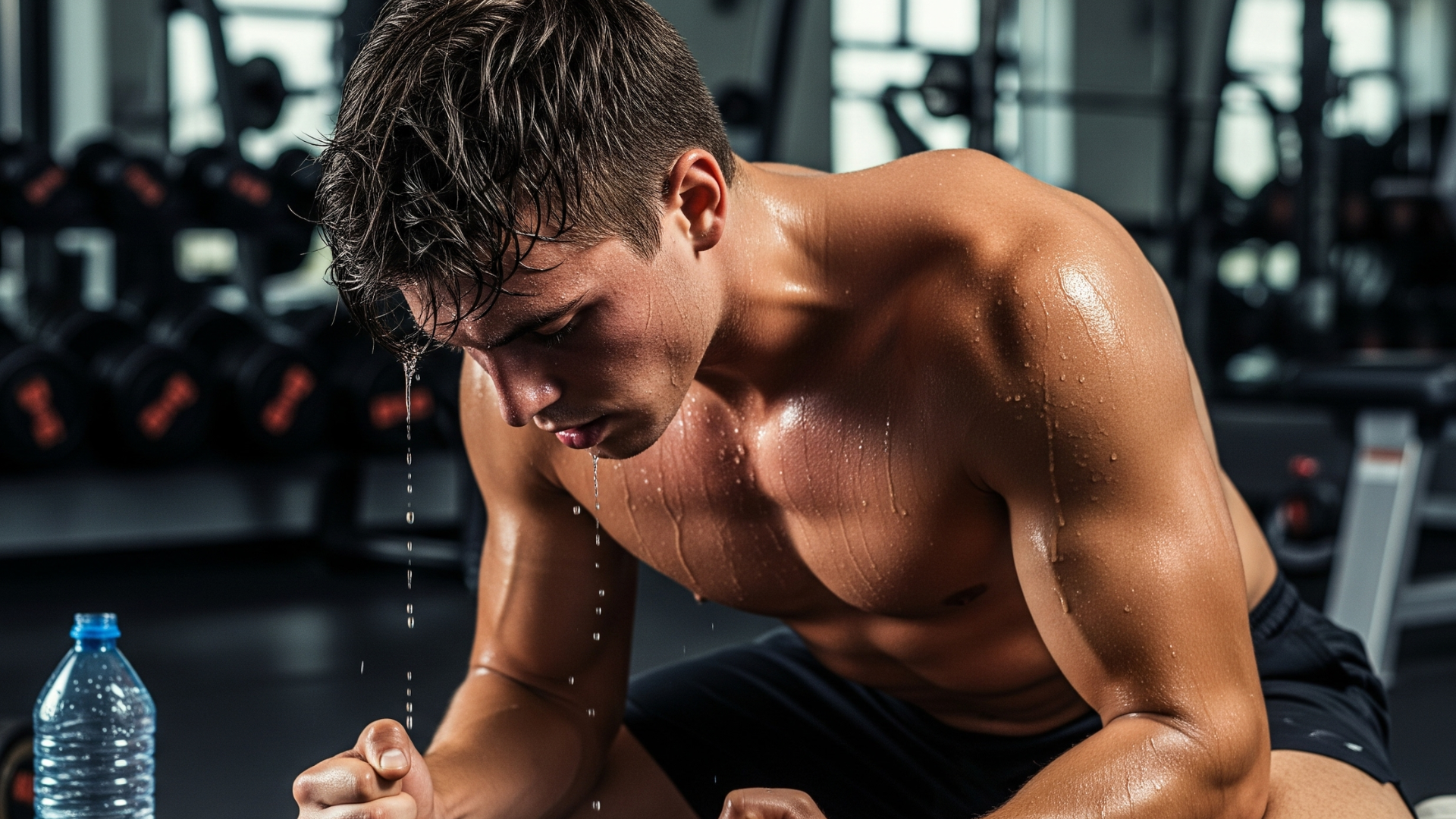
Hydration is important for exercise performance because it affects how muscles work and how quickly they heal. Your body loses water when you work out because you sweat. Dehydration can hurt your workout results if you don’t drink enough water.
For fluid balance and good athletic performance, it’s important to keep your body hydrated. Not drinking enough water can make you less effective, which can make it harder to reach your fitness goals.
What Effects Water Has on Muscle Recovery and Function
Water is important for keeping muscles working. It helps get oxygen and food to muscle cells. When you work out, your muscles work harder, and staying hydrated helps them do their best.
Water also helps you recover by getting rid of waste from exercise. Dehydration can make your muscles cramp, spasm, and feel tired. These problems can make it take longer for you to heal and do well.
These issues can be avoided by drinking water before, during, and after exercise. It helps you do better in your overall workout.
How electrolytes help athletes do their best
Electrolytes are very important for sports performance. Some examples are sodium, potassium, and calcium. They make muscles contract, keep nerves working, and keep the body hydrated. Electrolyte imbalances can make muscles cramp and make you weak when you work out hard.
Getting electrolytes back into your body is important before and after a hard workout. Electrolyte-rich drinks, like sports drinks, help keep your body in balance so you can do your best in sports.
Why staying hydrated is so important for working out
For a good workout, you need to stay hydrated. It changes your health over time and how well you do right away. Your body works best when you drink enough water, no matter what you do.
It’s not enough to just drink water to stay hydrated. It’s about keeping your body healthy. This means drinking the right amount of water to stay healthy and perform better.
Performance Advantages of Proper Hydration
Being well-hydrated can help your performance in many ways. You get stronger, faster, and able to last longer. You can work out harder and better if you drink enough water.
Effects on Athletes’ Health in the Long Run
Sports people’s long-term health is also affected by how well they stay hydrated. If you don’t drink enough, you could hurt your kidneys or get heat sickness.
When athletes drink enough water, they stay healthy and hurt less.
“A well-hydrated athlete is not only more effective in their training but also less prone to overuse injuries and illnesses.”
shows how important it is for athletes to stay hydrated for their long-term health.
Signs That You Aren’t Hydrated Enough While Working Out
You should know when you’re not drinking enough water while you work out. To stay cool and work well, your body needs water. If you don’t get enough, your workout may not go as well, and your health could be at risk.
Signs Your Body Is Dehydrated
When you work out, being dehydrated can show up in a number of ways. You could get a headache or feel dizzy or have a dry mouth. You might also get cramps, which are very painful when you work out. Dehydration can make you sick and make you throw up, which makes things worse.
When you’re really thirsty, your heart rate might go up. Your body is trying to make up for the water it has lost. To avoid bigger problems, it’s important to act quickly on these signs.
Signs that your body isn’t getting enough water
Being dehydrated can also make you not do as well in your workout. You might find it harder to keep going and get tired faster. You might also feel less coordinated or move more slowly than usual.
“Getting enough water is important for peak performance during exercise,” said a sports medicine expert. “Even a little dehydration can make you less effective in sports.” These signs can help you remember to drink more water, which will help your workouts.
Mistake No. 1: Not drinking until you’re thirsty
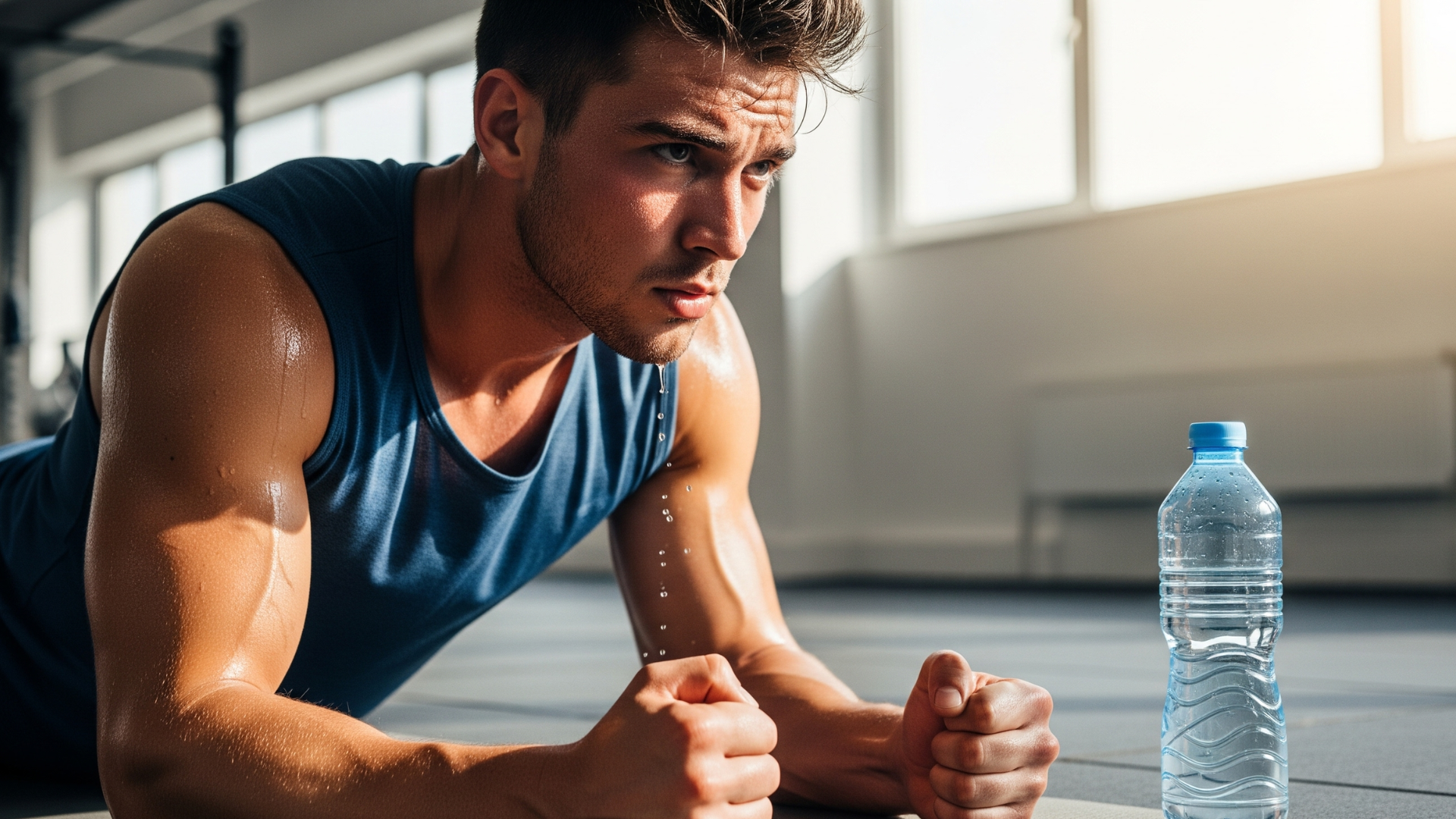
If you’re working out hard, being thirsty is not a good sign that you need water. When you work out, your body needs more water. Waiting until you’re thirsty can make you lose water.
What Thirst Means: It’s Too Late
When you’re thirsty, it means your body has lost water. You’ve lost 1% to 2% of your body’s water by the time you feel thirsty. This might not be good for your health or workout. Dehydration can make you less strong, give you muscle cramps, and even lead to serious health problems.
You lose water when you work out because you sweat. Dehydration can happen if you don’t drink enough. To stay hydrated, you should drink water before you feel thirsty.
Proactive Ways to Stay Hydrated
Do things ahead of time to make sure you stay hydrated. These are some good ways:
- While you work out, drink water every 15 to 20 minutes.
- Your pee should be a pale yellow color.
- Be sure to drink enough water during your workout.
Frequency Charts for Hydration
A hydration timing chart can help you figure out how much water to drink. For instance, drink 17 to 20 ounces of water two to three hours before you work out. Then, 8 ounces 20 to 30 minutes before and every 10 to 20 minutes during. Change this based on what you need and how hard you work out.
Apps and Tools to Help You Remember to Drink Water
There are lots of tools and apps that can help you drink enough water. Here are some popular ones:
- Waterlogged is a simple app that keeps track of how much water you drink.
- Hydro Coach lets you set your own goals for staying hydrated.
- Fitbit: A lot of Fitbit models keep track of how much water you drink and remind you to do so.
You can stay hydrated and do better if you use these tools and tips.
Mistake #2: Only drinking water to stay hydrated during a hard workout
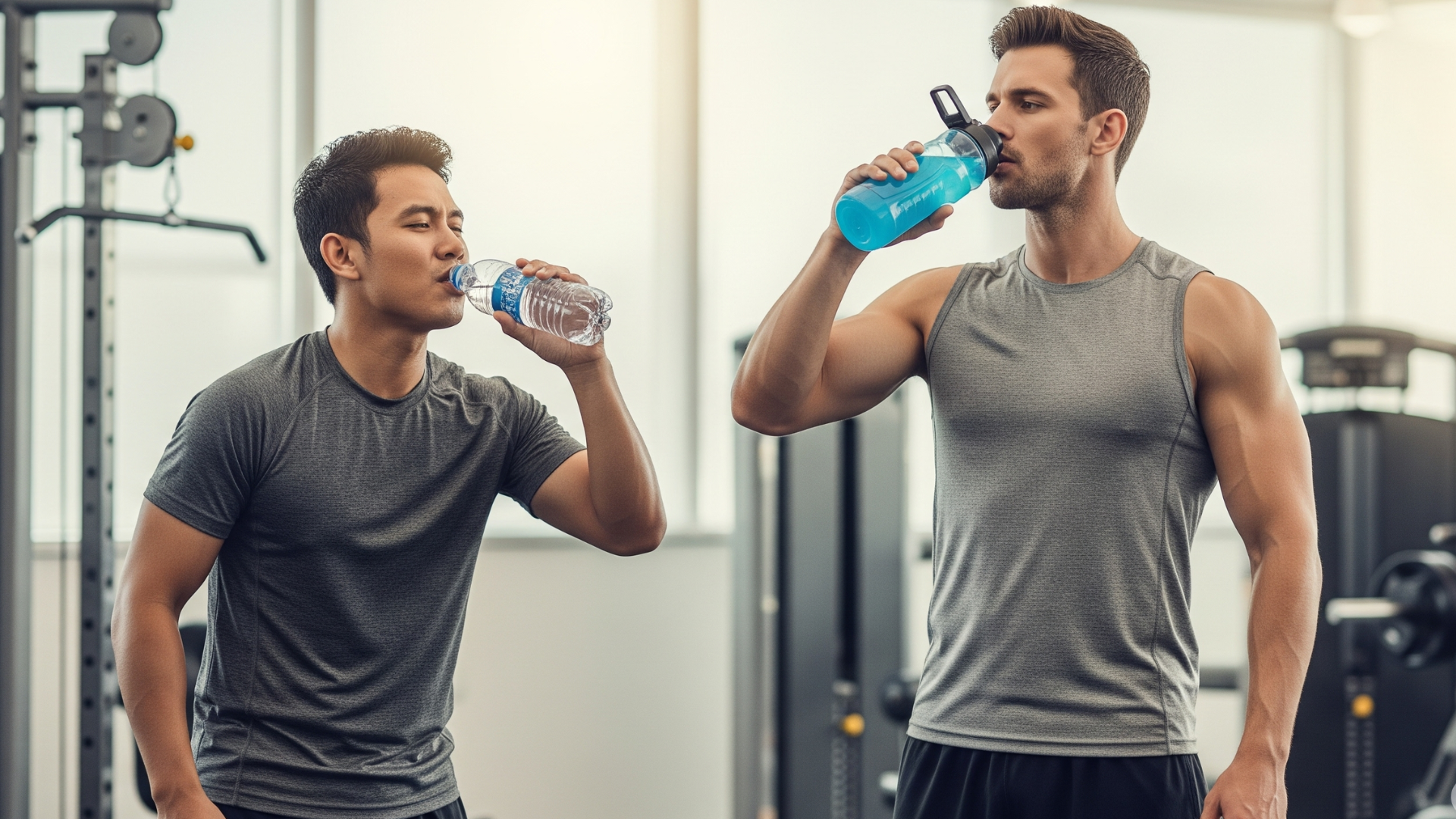
For people who work out hard, drinking only water might not be enough. You lose water and important electrolytes when you work out hard. These are very important for keeping your muscles and nerves healthy.
When Just Water Isn’t Enough
When you work out hard, you sweat and lose sodium, potassium, and calcium. It’s important for nerves and muscles to work. If you only drink water, these electrolytes can get diluted, which can cause hyponatremia or other problems.
Why it’s Important to Keep Your Electrolyte Balance
Acid-base balance is very important for athletes and people who work out a lot. Electrolytes help the body do many things. If you don’t have good balance, you could get cramps, be tired, or feel dizzy, all of which are bad for your health and performance.
Important electrolytes and what they do:
- Sodium helps keep the body’s water levels in check and keeps nerves and muscles strong.
- Potassium: keeps your heart rate steady and helps your muscles work.
- Calcium is needed for nerves to work and muscles to contract.
Popular products that athletes use to stay hydrated
There are many ways for athletes to stay hydrated. Each one is made for a different purpose.
Sports drinks vs. supplements for electrolytes
Sports drinks give you electrolytes and water. They’re great for long hikes. Electrolyte supplements can raise the level of electrolytes in water. What you choose will depend on how hard, how long, and what you like about your workout.
Natural Sources of Electrolytes
Looking for options that are natural? Electrolytes can be found in bananas, nuts, dairy, and coconut water. They might be a good pick.
Mistake #3: Drinking too much water before or after your workout
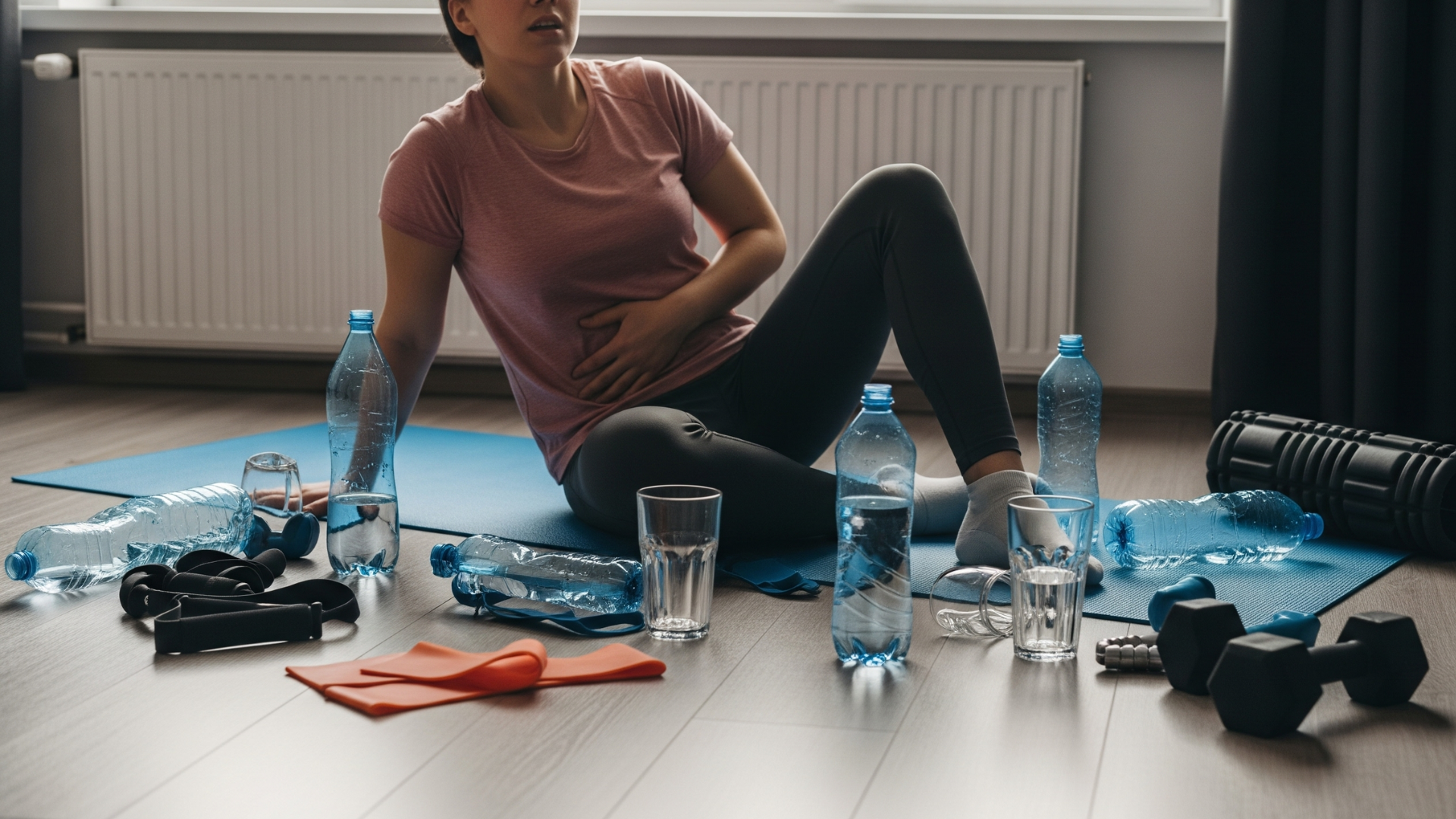
Knowing when to drink water is very important for getting the most out of your workout. It’s not just about drinking water whenever you want. It’s about drinking it at the right times to help you do better and recover faster.
Rules for Staying Hydrated Before a Workout
It’s very important to drink water before you work out. It gets your body ready for the stress it will have to deal with. Two to three hours before working out, drink 17 to 20 ounces of water. Twenty to thirty minutes before, drink eight ounces. This makes sure you’re well-hydrated and ready to do your best.
Hydration Rules for During-Workout
During your workout, you need to drink more fluids to make up for what you’ve lost. Every 10 to 20 minutes, drink 7 to 10 ounces of water. Use a sports drink with electrolytes to keep your electrolyte levels in check during longer or harder workouts.
Workout Duration | Hydration Recommendation |
Less than 60 minutes | Water |
60-90 minutes | Water or Sports Drink |
More than 90 minutes | Sports Drink with Electrolytes |
Recovering from a workout by drinking water
It’s important to drink water after your workout to help you recover. For every pound you lose while working out, drink 16 to 24 ounces of fluid. You should also eat or snack on carbs and protein after your workout to help you recover.
You can improve your workouts and recovery by following these tips for staying hydrated. Keep in mind that when you drink water is very important for getting the most out of your workouts.
Mistake #4: Overlooking Hydration Needs Based on Workout Type
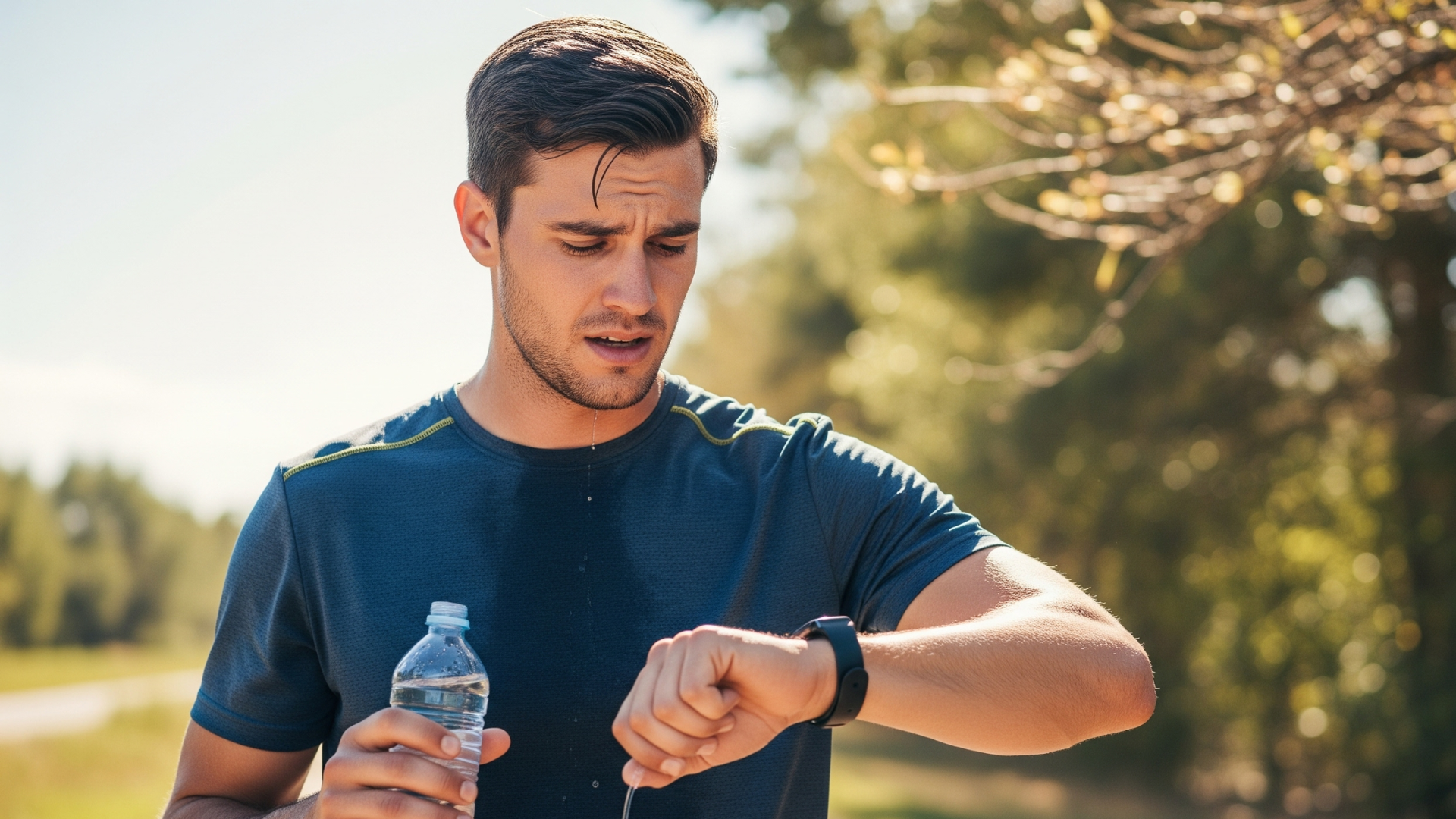
To stay hydrated, you need to know what kind of workout you do. When you work out, you need different amounts of water. The way you drink should be based on your workout, whether you do cardio, strength training, HIIT, or endurance.
Cardio vs. Strength Training: How Much Water You Need
Cycling or running for a long time makes you sweat a lot, so you need more water. It’s important to drink water and electrolytes after cardio to make up for the fluids you lose. Even if you don’t sweat as much when you strength train, you should still drink water before and after to help your muscles recover.
Thoughts on HIIT and Endurance Training
Because of the short, hard bursts of HIIT, you can lose a lot of water. HIIT and after it are both good times to drink water. Long runs and triathlons are examples of endurance sports that need a longer planned way to stay hydrated. Watch how much you sweat and change how much water you drink.
Taking into account environmental factors
How much water you need changes based on the weather. It’s important to adapt your water plan to the weather.
Workout Hydration for Hot Weather
When it’s hot, you sweat more and lose more water. To keep from getting dehydrated, you need to drink more water. Salts that are lost can be replaced with electrolyte drinks.
Hydration Problems in Cold Weather
Being cold can also make you lose water because dry air absorbs it. Drink water even if you’re not thirsty. Making sure you drink enough is easy: look at the colour of your urine.
Mistake #5: Eating or drinking things that make you dehydrated before your workout
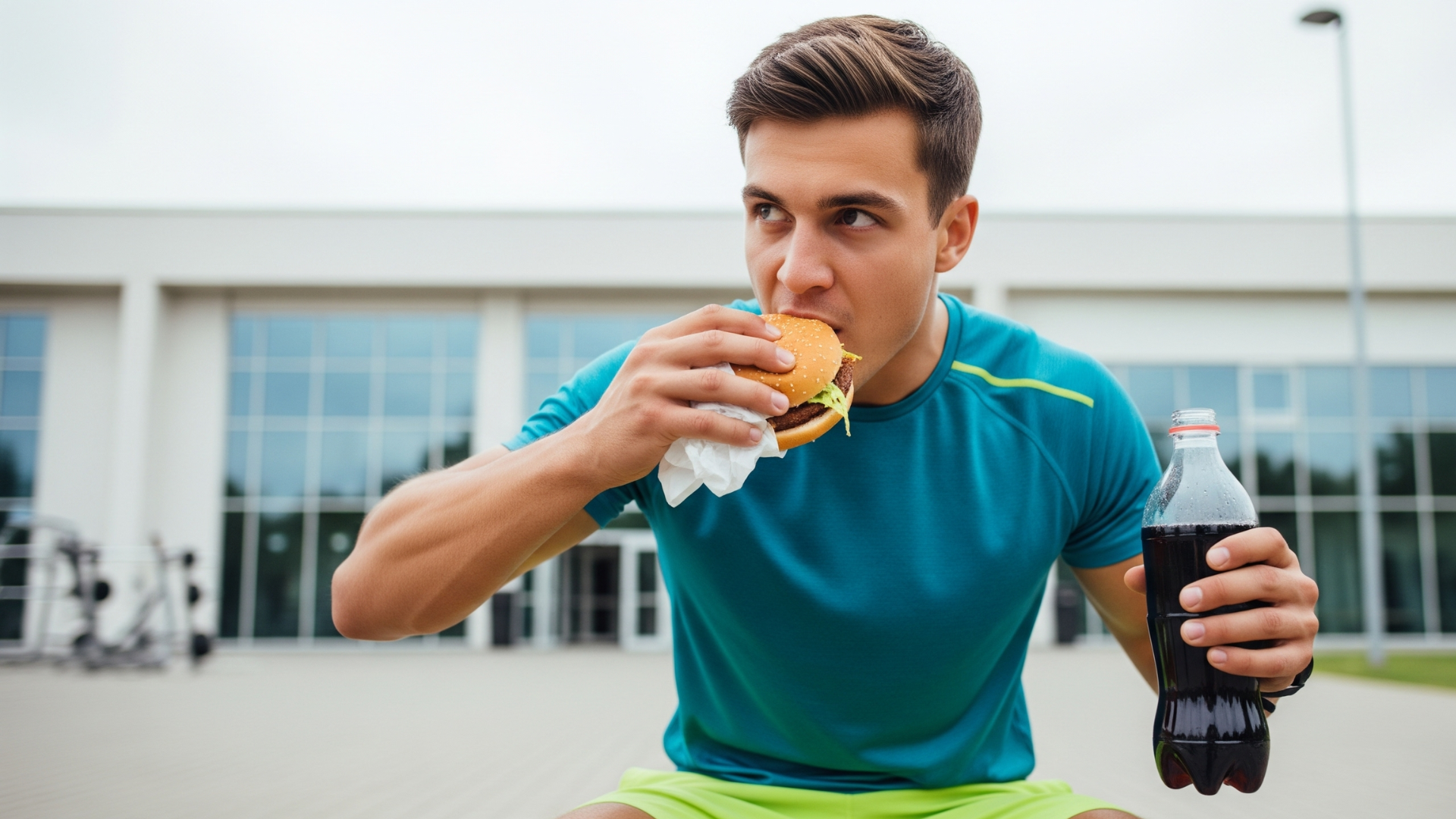
A lot of people don’t know that some foods and drinks can make their bodies dry out before they work out. This could hurt your health and how well you do.
Before working out, drinking things that dry you out can make you perform worse, raise your risk of injury, and slow down your recovery. Before you work out, it’s important to think about what you eat and drink to avoid these issues.
What caffeine and alcohol do to you
Caffeine and alcohol are two things that often dry out the body. Caffeine makes you urinate more, which makes you lose fluids. Too much caffeine can make dehydration worse. Alcohol also makes you lose fluids and throws off the balance of fluids in your body.
“Drinking alcohol can make you dehydrated, which can hurt your ability to work out and recover.”
The Journal of the International Society of Sports Nutrition published a study that found that drinking alcohol after working out can make recovery take longer. It makes it harder for the body to get more fluids and electrolytes.
Things in your diet that can make you dehydrated
There are more ways that your diet can make you dry out that you can’t see. Drinks with a lot of sugar and foods with a lot of salt can also make you lose fluids. You can make better food choices if you know about these.
Food/Drink | Dehydration Potential | Alternatives |
Caffeinated beverages | High | Herbal teas, water |
Alcoholic beverages | High | Infused water, low-calorie drinks |
Sugary drinks | Moderate | Water, unsweetened tea |
High-sodium foods | Moderate | Low-sodium alternatives, balanced meals |
Better food choices before working out
Eating the right foods before you work out can help you stay hydrated. Eat foods that help you stay hydrated, like cucumbers and watermelon. To stay hydrated, drink water or drinks that are high in electrolytes.
You can stay hydrated and do better in your workouts by avoiding foods and drinks that make you lose water and making smart food choices.
Conclusion: Getting the right amount of water can help you work out better.
To get better results from your workouts, you need to drink enough water. It’s very helpful to know how important water is for staying fit. It helps you get better faster and makes your workouts better.
It’s very important to drink enough water to help your body recover from exercise and do its best. Drink before you get thirsty. And don’t just drink water either. This will help you get better at your workouts.
Make a hydration plan that works for you to get better results from your workouts. Think about what you need, what kind of workout you do, and where you work out. This will help you do your best and reach your fitness goals faster.
Make sure that your fitness plan includes a lot of ways to stay hydrated. This will help you get better results from your workouts and stay healthy in general.
